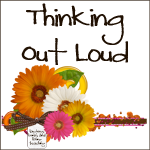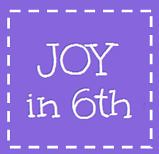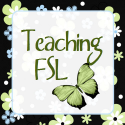Stop by the links below to check out what other people are saying about these sections- and link up your own or post your comments.
The Anchor Questions
Sometimes when you read professional books, you get the idea that the authors have been in classrooms doing research, but they weren't connected really to the classroom, students, teachers etc... They seem a bit removed from the in the trenches action of school, or the classrooms they work in are so perfect you can't relate to them. So, when you read those books, although you may gain a lot of information that helps you in your teaching, you just don't make that personal connection to the book that makes it one you use and refer to over and over again.
Notice and Note is NOT one of THOSE books! I feel like these authors really connected to the teachers and schools where they visited. I feel like they really know what's going on in classrooms all over the country. I feel like they really know what teachers are going through when we try to navigate through close reading. While reading the book, I am constantly talking to myself- saying things like "Yes- me too!" "I do that!" "So true!" "Wow, they are exactly right!" And, more importantly, really reflecting on some of the things they say.
One of the big things that struck me in this section was the conversation about questions. The authors are talking about how teachers often spend long hours creating a series of questions that lead students through a text. And, then we did it all again the next day with a different series of questions. Problem is, as the authors state, we own the questions. They are not the students' questions and they didn't do much to help struggling readers become independent readers. Mostly because we believed it was the answers, not the questions, that were important. But it's really the questions that matter and we need to teach students to take ownership of the questions so they can navigate the text without relying on a teacher to provide questions for them.
So, from all of this, the authors created ONE question to go with each of the signposts. When we teach the signposts we should also teach the anchor question that goes with it. Because, although noting the signpost in a text is wonderful, it's the question that prompts the deeper thinking of the text.
The Role of Generalizable Language
I really liked this section because it made me think a lot about our goal when we are reading novels with students. I think we tend to forget the big picture. We get so caught up on students understanding a particular book and analyzing the things in that particular book that we forget that what we teach them we want to transfer to the next book they read. That's why the signposts and anchor questions make so much sense. But this section talks about how the language we use needs to transfer to any story they are reading. I like the last sentence of the section, "And we need to make sure that the language we use doesn't just help them learn more about any one particular text but is generalizable to other texts."
So, tune in on Thursday for more about Generalizable Language...










































